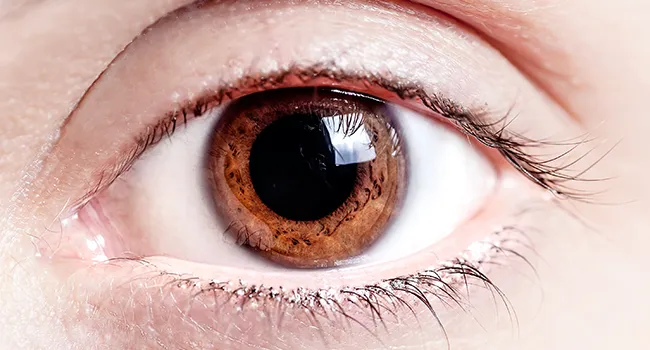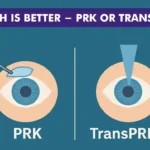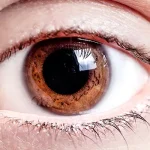Ever noticed someone’s eyes getting big, like they’ve seen a surprise? That’s called dilated pupils, and it’s more than just a cool party trick – it’s a window into our bodies! In this blog, we’re going to break down the science behind dilation in eyes, what it can tell us, and why it matters. So, get ready to explore the wide-eyed world of dilated eye pupils with us!
What Are Dilated Pupils?
Eye dilation, also known as mydriasis, refers to the condition where the pupils of the eyes appear larger than normal. The pupil is the black circular opening in the center of the iris, which controls the amount of light entering the eye. When the dilation in eyes is done, they allow more light to enter the eye, resulting in a larger pupil size.
Understanding the causes and effects of eye dilations is important for both medical professionals and individuals experiencing this condition. By exploring the various aspects of dilated pupils, we can gain a better understanding of this intriguing phenomenon.
Causes of Dilated Pupils
There are several potential causes of dilated eye pupils. One common cause is the use of certain medications, such as eye drops or oral medications that can affect the size of the pupils. Additionally, certain drugs can also cause eye dilation.
In some cases, dilated pupils may be a result of an underlying medical condition or eye injury. Conditions such as head trauma, brain tumors, or neurological disorders may lead to pupil dilation. It is important to consult with a healthcare professional to determine the underlying cause of eye dilation.
What to do when you have an eye injury?
Is Having Dilated Pupils Something Serious?
Whether dilated eye pupils are a cause for concern depends on the underlying cause. Eye dilation may be a normal response to changes in light or emotions. However, if dilated pupils occur without any apparent cause or are accompanied by other symptoms, it is important to seek medical attention.
Dilated pupils can be a symptom of a serious medical condition, such as an acute head injury or drug overdose. It is crucial to rule out any potential underlying issues and receive appropriate medical care.
What Is Mydriasis?
Mydriasis, or dilated pupils, is an eye phenomenon that can occur for a variety of reasons. While it can be a natural response to changes in light or emotions, it can also indicate an underlying medical condition or the influence of certain medications. This dilation of the pupils is not only intriguing but also crucial for healthcare professionals to monitor and understand. By recognizing the signs of mydriasis and its potential causes, medical professionals can accurately diagnose and provide the necessary treatment for individuals experiencing this condition. Monitoring pupil size and staying informed about the factors contributing to mydriasis is essential in ensuring optimal eye health and overall well-being.
How to Check Your Pupil Size
Performing a self-examination to check your pupil size is a straightforward process that can be done at home. Find a well-lit area and stand in front of a mirror, focusing on one eye at a time. Take a moment to observe the size of the pupil in each eye, noting any differences or abnormalities. It is essential to compare the size of one pupil to the other, as discrepancies may indicate underlying issues.
If you happen to notice significant variations in pupil size or any other concerning abnormalities, it is highly advisable to seek professional medical advice. Consulting with a healthcare professional for a thorough examination can help identify any potential causes or underlying conditions contributing to the differences in pupil size. Taking proactive steps to address any concerns regarding your eye health is crucial in maintaining optimal well-being.
Medicines and Drugs That Can Dilate Pupils
There are various medicines and drugs that can cause dilation in eyes. In ophthalmology, certain eye drops are used to dilate the pupils for diagnostic or therapeutic purposes. These eye drops contain medications that temporarily relax the muscles of the iris, allowing the pupil to dilate.
Apart from eye drops, certain systemic medications and drugs can also cause eye dilation as a side effect. These may include medications for allergies, certain antidepressants, or medications used in anesthesia. It is important to follow the instructions provided by healthcare professionals when using these medications and be aware of the potential effects on pupil size.
Do Dilated Pupils Hurt?
Dilated eye pupils, known as mydriasis, don’t inherently cause pain. However, any discomfort associated with it is usually linked to underlying factors. Eye strain from prolonged exposure to bright light or extended screen time might cause discomfort, but it’s not directly related to dilated eye pupils. Medications and certain eye conditions that lead to eye dilation may contribute to discomfort or pain, emphasizing the importance of consulting an eye care professional if you experience any concerns. In summary, dilated pupils alone should not be painful, but addressing the root cause is essential for overall eye health.
Pupil Dilation Test: What It Is All About
An eye dilation test is a common procedure performed by healthcare professionals to examine the health of the eyes. During the test, eye drops are administered to dilate the pupils, allowing for a better view of the retina and other parts of the eye.
The test is typically painless and can help detect various eye conditions, such as glaucoma, macular degeneration, or retinal detachment. It is often performed as part of a comprehensive eye checkup.
If you are scheduled for an eye dilation test, it is advisable to bring sunglasses or make arrangements for transportation, as the dilated pupils can temporarily increase sensitivity to light.
Treatment For Dilated Pupils
The treatment options for dilated eye pupils depend on the underlying cause. If dilated eye pupils are a result of medications, the dosage or type of medication may need to be adjusted under the guidance of a healthcare professional.
For dilated pupils caused by an underlying medical condition, treatment will focus on addressing the root cause. This may involve medication, surgery, or other interventions as determined by the healthcare provider.
It is crucial to follow the recommended treatment plan and attend regular follow-up appointments to monitor the progress and ensure optimal eye health.
How Long Will My Pupils Be Dilated?
The duration of dilated eye pupil depends on the cause:
Eye Exams: Dilation in eyes from eye drops during exams typically lasts 4 to 6 hours, but can take up to 24 hours.
Medications: Dilation due to certain eye drops or medications may last a few hours to a day.
Underlying Conditions: If caused by medical conditions, dilated pupils may persist until the underlying issue is addressed.
Environmental Factors: Natural eye dilation and constriction in response to light changes are temporary.
Individual responses vary, and consulting an eye care professional for personalized advice is recommended if you have concerns about prolonged dilation in eyes.
When to Call the Doctor
Call a doctor if you experience:
Unequal Pupil Size: Sudden and persistent differences may indicate underlying issues.
Prolonged Dilation: If pupils remain dilated beyond the expected duration.
Eye Pain or Discomfort: Especially when accompanied by dilated pupils.
Changes in Vision: Significant shifts like blurriness or double vision.
Headache or Migraine: Particularly if linked with dilated eye pupils.
Recent Head Injury: Seek immediate attention for changes in pupil size or vision after trauma.
Persistent Symptoms: If unsure or concerned about your eye health, consult a healthcare professional promptly.
Why Centre For Sight?
Centre for Sight is a preferable destination for comprehensive eye care for several reasons:
Expertise: Boasts a highly skilled team of eye care professionals.
Comprehensive Services: Offers a wide range of services, from routine exams to advanced surgeries.
Cutting-Edge Technology: Utilizes state-of-the-art technology for accurate diagnostics and innovative treatments.
Comfortable Facilities: Well-equipped, comfortable facilities contribute to a positive patient experience.
Patient-Centric Approach: Prioritizes individual needs with personalized care.
FAQs
What causes dilated pupils?
Changes in lighting, emotions, medications, or medical conditions can cause dilated pupils.
Are dilated pupils a sign of a medical condition?
Yes, dilated eye pupils can be a sign of underlying medical conditions or the result of medications.
Can dilated pupils affect vision?
Dilated pupils may cause sensitivity to light but typically do not directly affect vision.
What is a normal size for pupils?
In normal lighting, pupils range from 2 to 4 millimeters in diameter.
How long do dilated pupils last?
Depends on the cause; from a few hours to a day, or longer for certain medications.
Can one pupil be more dilated than the other?
Yes, one pupil can be more dilated than the other, known as anisocoria.
Do pupils dilate when in love?
Yes, emotions like love can cause pupil dilation, but it’s not a definitive sign.
Can you fix dilated pupils?
Treatment depends on the cause; consult our healthcare professional for appropriate measures.
How often should I have my pupils dilated during an eye exam?
Typically during comprehensive eye exams or when specific conditions are suspected.
Are dilated pupils reversible?
Yes, in most cases, dilation is reversible once the underlying cause is addressed.





